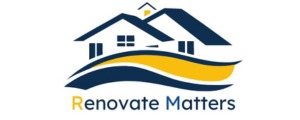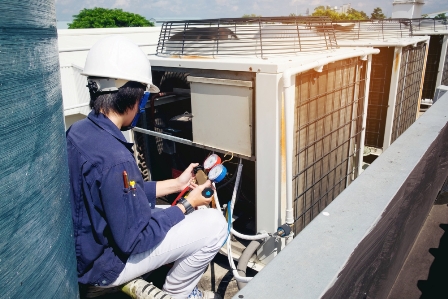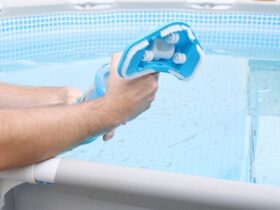Heating, Ventilation, and Air Conditioning (HVAC) systems play a crucial role in maintaining a comfortable indoor environment. However, like any complex machinery, they are prone to issues that can disrupt their functionality. Regular maintenance is key to preventing these problems and ensuring the efficient operation of your HVAC system.
Uneven Cooling or Heating
Uneven temperature distribution is a common complaint among homeowners with HVAC systems. This issue can arise due to various reasons, such as blocked vents, dirty filters, or imbalanced airflow. To troubleshoot, start by checking and addressing these factors. Ensure all vents are open and unobstructed, and consider adjusting dampers or installing a zoning system for better control over different areas.
Loud or Strange Noises
HVAC systems can produce a range of noises, but loud or unusual sounds may indicate underlying issues. Clanking, banging, or squealing sounds might be signs of loose or damaged components. Perform a visual inspection and tighten any loose parts. If the noise persists, it’s advisable to seek professional assistance to avoid further damage.
Faulty Thermostat
A malfunctioning thermostat can lead to inaccurate temperature readings and inefficient operation. Check the thermostat settings, replace batteries if needed, and ensure it’s not exposed to direct sunlight or drafts. If issues persist, consider recalibrating or replacing the thermostat to restore accurate temperature control.
Airflow Issues
Restricted airflow can strain your HVAC system, reducing its efficiency. Common culprits include clogged air filters or obstructed vents. Regularly clean or replace air filters, and ensure vents remain unblocked. In cases of persistent airflow problems, consider consulting a professional to inspect and clean the ductwork.
Refrigerant Leaks
Refrigerant is crucial for the cooling process in air conditioners. Signs of refrigerant leaks include reduced cooling capacity and hissing sounds. While adding refrigerant might seem like a quick fix, it’s essential to identify and repair the leak to prevent further issues. Professional technicians can locate and address refrigerant leaks effectively.
High Energy Bills
Unexpectedly high energy bills can signal inefficiencies in your HVAC system. Check for air leaks in your home, upgrade insulation, and invest in a programmable thermostat for energy optimization. Regular HVAC maintenance, including cleaning coils and checking refrigerant levels, can also contribute to energy savings.
Frozen Evaporator Coil
Frozen evaporator coils can impede proper heat exchange. Causes include dirty filters, low refrigerant levels, or airflow restrictions. If you notice ice buildup, turn off the system to allow the coil to thaw. Address the root cause, such as replacing filters or calling a professional to recharge refrigerant levels.
Constant Cycling On and Off
Frequent cycling on and off, known as short cycling, can strain HVAC components. This may result from an oversized system, faulty thermostat, or blocked airflow. Ensure the thermostat is properly calibrated, replace air filters, and consider consulting an HVAC professional to assess and correct short cycling issues.
Condensate Drainage Problems
Proper condensate drainage is crucial for preventing water damage and maintaining system efficiency. Clear clogged condensate lines regularly and ensure the drain pan is clean. Installing a condensate pump can help redirect excess water away from the unit.
Dirty or Clogged Filters
Dirty filters can lead to reduced airflow, increased energy consumption, and system malfunctions. Follow the manufacturer’s recommendations for filter replacement frequency. Regularly check and clean or replace filters, as this simple maintenance task can significantly improve system efficiency.
Ignition or Pilot Issues
Problems with starting the heating system may stem from ignition or pilot issues. Ensure the pilot light is lit and inspect for any obstructions. If the problem persists, consult your HVAC manual for troubleshooting steps or call a professional for assistance.
Faulty Capacitors
Capacitors play a crucial role in starting and running HVAC motors. Signs of faulty capacitors include difficulty starting the system or frequent motor failures. A professional technician can diagnose capacitor issues and replace them if necessary, restoring the system’s efficiency.
Ductwork Issues
Leaks, blockages, or poor insulation in ductwork can compromise the effectiveness of your HVAC system. Inspect ducts for visible issues, such as gaps or tears, and ensure proper insulation. Professional duct cleaning and sealing services can address more complex problems.
FAQs
Air filters should be replaced every 1 to 3 months, depending on factors like filter type and usage.
It’s recommended to consult a professional technician for refrigerant leak repairs to ensure proper identification and resolution.
Incorrect thermostat readings may result from calibration issues, and recalibration or replacement may be necessary.
Causes include dirty filters and low refrigerant levels. Regular maintenance, including filter replacement, can help prevent frozen coils.
Yes, short cycling can lead to increased wear on components. Consult an HVAC professional to address and correct short cycling problems.
Conclusion
Understanding and troubleshooting common HVAC problems can help you maintain a comfortable and energy-efficient home. Regular maintenance, including filter replacements, system inspections, and professional assistance when needed, is essential for preventing issues and extending the lifespan of your HVAC system.







Find Us on Socials